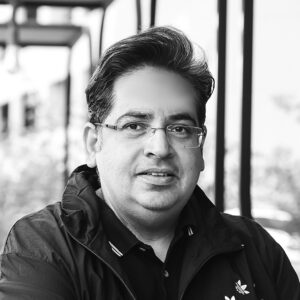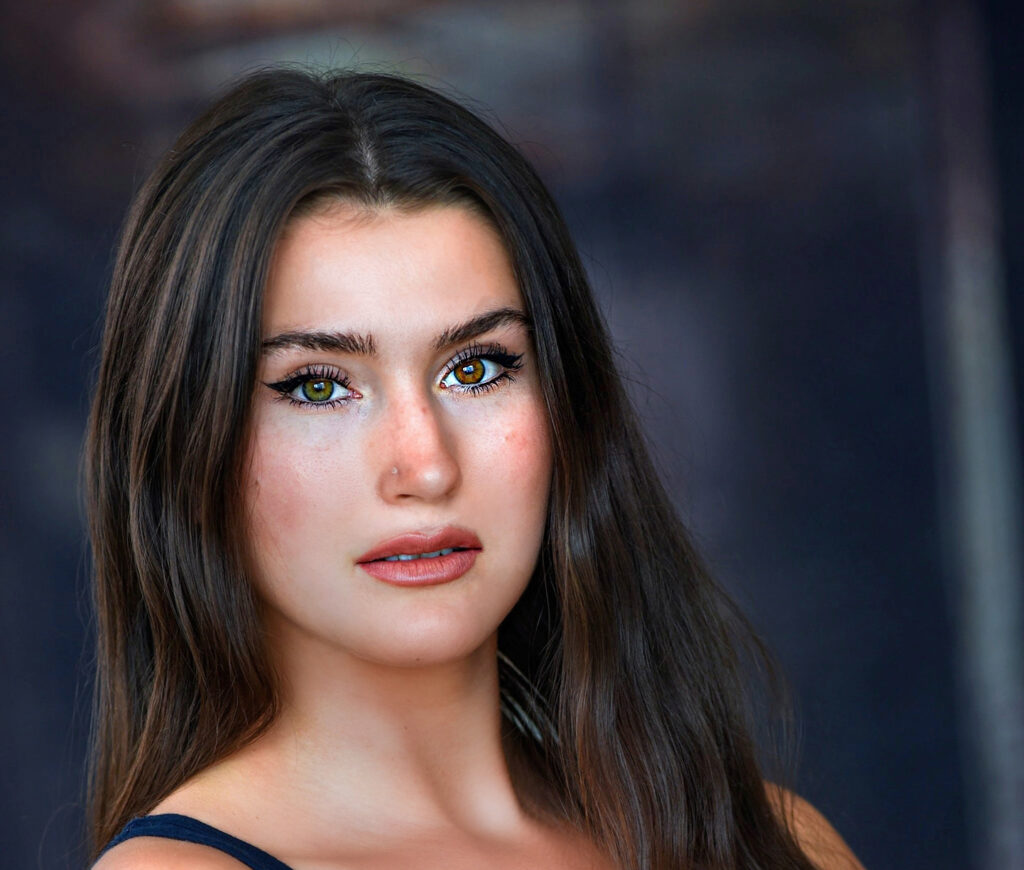Changing the Way We Think About Food, Globally
At TorontoPages, we take pride in spotlighting inspiring Canadians making an impact both at home and abroad. In this exclusive feature, we sit down with Sedra Jundi—a Toronto-raised, Dubai-based Registered Clinical Dietitian whose unique blend of science and culture is reshaping how we think about food and wellness. With a Master’s degree from McGill University and a growing presence on social media as @theculinary.dietitian, Sedra bridges evidence-based clinical nutrition with the rich traditions of Arab culinary heritage.
Currently practising at Liv Hospital in Dubai, Sedra has carved out a niche in gut health, weight management, and functional nutrition. Her story is one of bold moves and deep-rooted purpose—from moving continents at age five, to crafting holistic health protocols for a global clientele. Through this heartfelt conversation, she shares insights on her upbringing, professional journey, the myths she’s debunking, and the message she hopes to spread through her work.
Whether you’re in downtown Toronto or across the globe, Sedra’s words are a reminder that food is more than fuel—it’s a story, a connection, and a way to heal. Join us as we delve into the journey of a Canadian changemaker who’s bringing soul back to science.
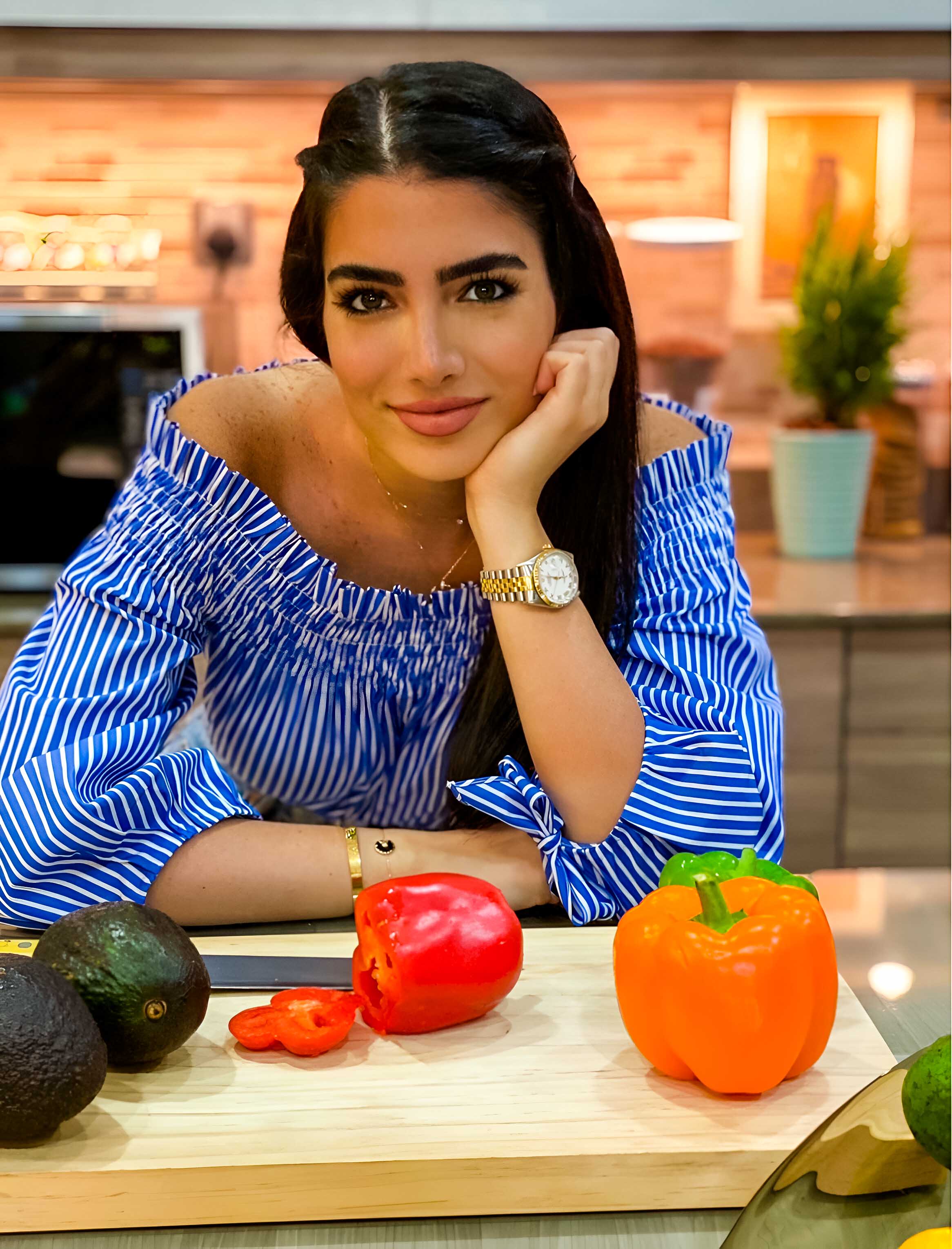
Can you tell us about your childhood—where you were raised and what your early years were like?
I was born in Saudi Arabia, and at the age of five, my family made the bold move to Toronto, Canada. That shift shaped everything—my sense of identity, adaptability, and curiosity. I changed schools often, each time meeting people from different walks of life. It felt like I was collecting little pieces of culture, tradition, and language everywhere I went. That melting pot of experiences shaped me into who I am today—curious, culturally fluid, and deeply connected to the stories behind every plate of food.
Were you always interested in health, food, and science growing up?
Honestly, I was the kid who loved science fairs but also begged for extra servings of my grandmother’s cooking. I didn’t realise it back then, but I was always fascinated by how food could make you feel—comforted, energised, or even sluggish. That mix of curiosity and love for food naturally bloomed into an obsession with understanding how our bodies work and how nutrition can be both medicine and pleasure.
How did your cultural background shape your views on food and wellness?
My Arab upbringing taught me that food is connection. It’s how we celebrate, heal, and show love. But it also taught me that wellness isn’t just what’s on your plate—it’s how you eat, who you eat with, and the stories behind each dish. That blend of tradition and science is something I now carry into my practice.
Who were your biggest role models growing up, personally or professionally?
My mum and my dad, without a doubt. My mother balanced moving across continents, raising a family, and keeping her heritage alive in a new country. My father always taught me that life is constantly moving—we have amazing days and we have horrible ones. The key is to keep pushing and to never give up. Professionally, I always admired people who created something beyond the textbook—functional medicine pioneers and integrative dietitians who dared to blend the clinical with the human.
What’s a childhood memory that still inspires the work you do today?
I vividly remember helping my grandmother prepare meals from scratch—grinding spices, peeling garlic, and listening to her stories. It felt sacred. Now, every time I build a nutrition plan, I think about how food isn’t just fuel—it’s memory, culture, and ritual.
What led you to pursue a degree in dietetics and nutrition?
It started with wanting to understand how to feel better in my own body, and grew into a desire to help others do the same. I realised that food was the one universal language we all speak—but very few of us truly understand.
Tell us more about your MSc journey—where you studied and what your focus was.
I completed my MSc at McGill University in Canada, with a focus on clinical nutrition. My thesis explored the link between gestational diabetes and education, which opened the door to my ongoing fascination with the amazing field of nutrition.
How did your experience studying in Canada shape your approach to clinical dietetics?
Canada gave me the gift of diversity—not just culturally, but in how I was taught to think. It emphasised evidence-based practice, inclusivity, and the importance of individualised care. That foundation is what still guides me, even when working across different healthcare systems today.
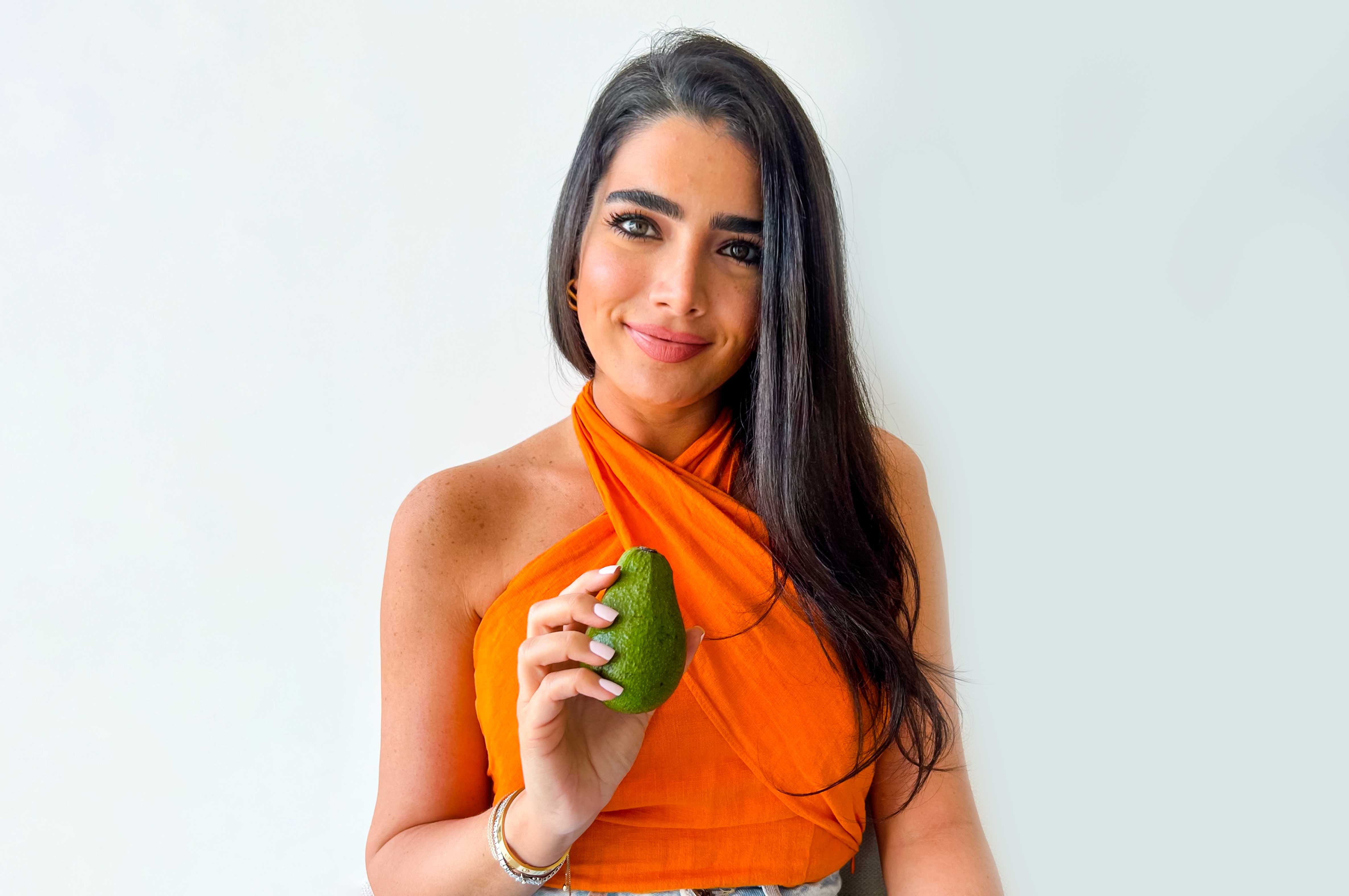
Can you walk us through a typical day in your role at Liv Hospital in Dubai?
Every day is different—which is exactly why I love it. My mornings often start in the outpatient clinic, followed by kitchen meal supervision and inpatient rounds. By the afternoon, I’m in clinic doing one-on-one consults, reviewing labs, and crafting personalised nutrition protocols. It’s the perfect blend of science, connection, and creativity.
What inspired your move to Dubai, and how has it influenced your personal and professional life?
I wanted to be closer to my roots while still growing professionally. Dubai gave me that middle ground—a global city that embraces innovation while honouring tradition. It pushed me out of my comfort zone and into rooms where I had to find my voice fast. It’s where I became both softer and sharper. Despite all of this, Saudi Arabia will always be home and the place I feel most grounded.
How does working in the UAE healthcare scene compare to your experiences in Canada or the UK?
It’s dynamic and evolving. The UAE is investing heavily in healthcare, which means there’s room to innovate—but also a need to educate. I find myself wearing multiple hats: dietitian, educator, advocate, and sometimes even translator of evidence into culturally relevant advice.
What’s your favourite thing about living in Dubai?
The energy. It’s unapologetically ambitious. You’re constantly surrounded by people creating, building, and dreaming big. Plus, winter mornings on the beach after a matcha latte? Hard to beat.
What do you miss most about Canada?
The fall. The crisp air, the smell of leaves, and that comforting sense of routine. And of course, the food scene—Toronto’s multicultural cuisine is unmatched.
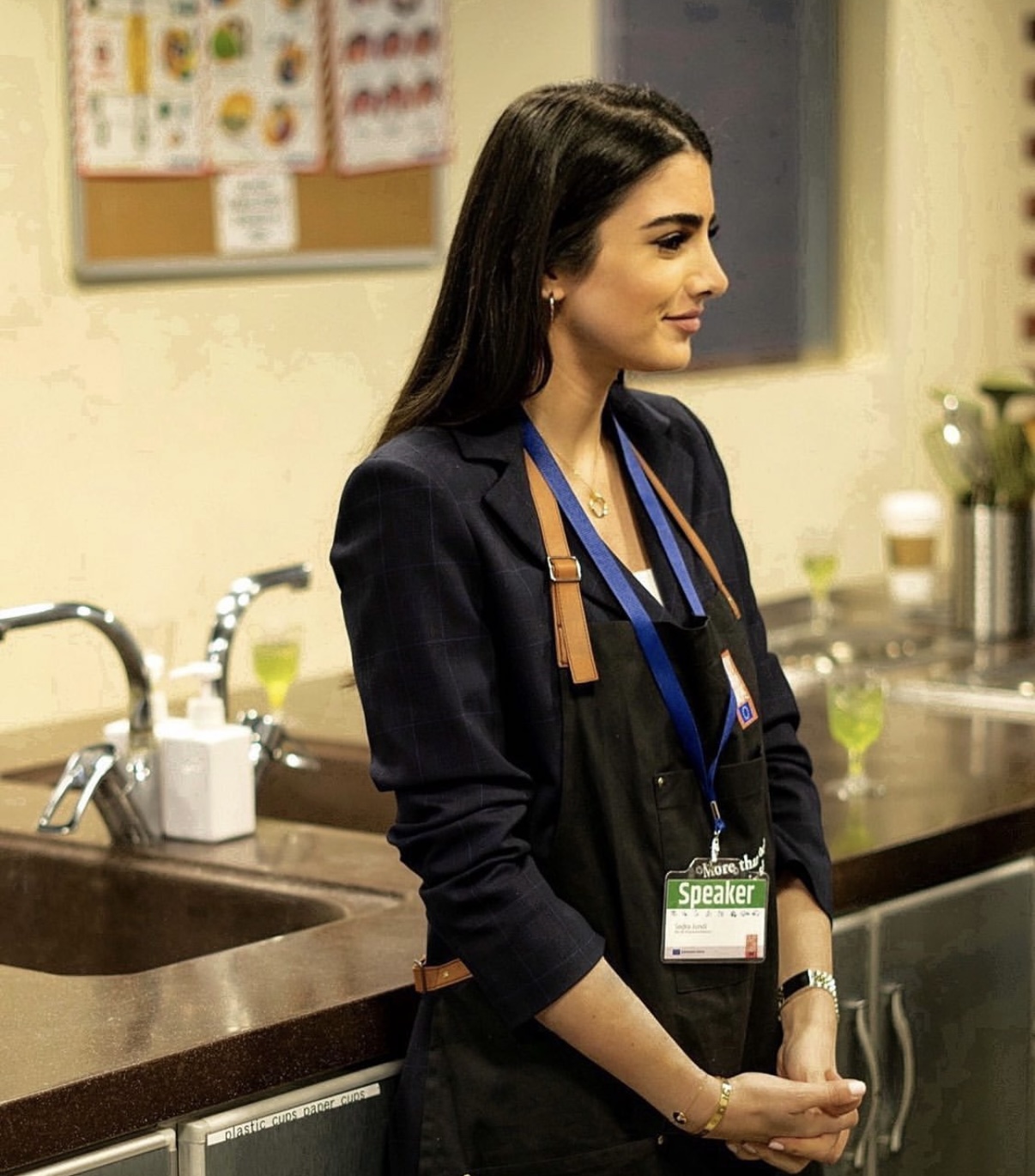
What inspired you to start your Instagram page, @theculinary.dietitian?
I wanted to bridge the gap between science and everyday eating. Too many people think nutrition is either boring or restrictive—I wanted to show that it can be flavourful, freeing, and deeply personal.
What do you hope to convey to your audience through your content?
That wellness isn’t one-size-fits-all. That you can honour your cravings and your culture while still making empowered, nourishing choices. I want my page to feel like a place where science meets soul.
What kind of feedback do you get from your followers that truly sticks with you?
The messages that say, “You made me feel seen,” or “I finally understand my body.” That kind of impact makes every late-night caption-writing session worth it.
What’s one nutrition myth you’d like to debunk once and for all?
That carbs are the enemy. Carbs are not your villain—lack of context is. It’s time we stop demonising food and start understanding it.
What’s a common mistake people make when trying to manage their weight?
Chasing quick fixes. Real change takes time, consistency, and compassion. The goal isn’t perfection—it’s progress.
Are there any foods you think are universally misunderstood?
Fats. Especially those in foods like olive oil, tahini, and avocado. We were taught to fear them, but they’re some of the most nourishing and healing ingredients we can eat.

Outside of nutrition, what are your hobbies or interests?
I love pilates, travel, reading, and interior design. Take me to a cosy café, with a good book and a nice playlist, and I’m in my element.
What has been your proudest achievement so far in your career?
Being able to help patients feel better—not just on paper, but in their skin, energy, and self-worth. Also, being invited to speak on regional health shows and platforms that reach thousands—that’s been surreal.
Your message for us at TOPS (TorontoPages Magazine).
Thank you for giving space to stories that go beyond titles and credentials. Toronto will always be home to the version of me that started dreaming—and I’m honoured to share where that dream has taken me.
